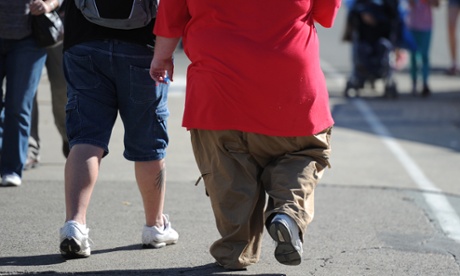International report involving 188 countries shows 11m Australians and 2.2m New Zealanders need to lose weight

People in Australia and New Zealand are gaining weight at an alarming rate, an international report shows.
They are among the fattest in the 188-country report: New Zealand adults ranked 23rd and Australians ranked 30th, catching up to the US (20th) and overtaking Britain (31st).
About 11 million Australian adults and 2.2 million New Zealanders need to lose weight, the report says. More than six in 10 in both countries are overweight or obese.
This is a dramatic rise from 1980, when about half the adults in the two countries were overweight.
New Zealand children and teenagers are the 23rd fattest, with almost three in 10 needing to lose weight.
Young Australians are ranked 52nd, with just under a quarter regarded as overweight.
When grouped together, Australians and New Zealanders are becoming obese at a faster rate than any other region, says the report, published in the Lancet medical journal on Thursday.
“We should be incredibly worried,” says the report’s co-author, Professor Graeme Hankey, of the University of Western Australia.
Other developed countries are starting to plateau, he says, but not Australia and New Zealand.
Apart from the burden of diabetes, heart disease and stroke, “It causes wear and tear on the knees, hips and spine from having to carry the weight around,” says Hankey.
“We seem to have nailed tobacco and reversed the trend, but we are not doing very well at managing this.”
Part of the blame must go to junk food and junk drink, says Professor Rob Moodie ,of the Melbourne school of population health.
“The environment is geared towards over-consumption because of the way food is marketed and because of a lack of regulation,” he says.
“The junk food and processed food industry is enormously powerful. The politicians are absolutely frightened.
“It’s all over sport and social media. The exposure of children to junk food and junk drink advertising needs to be reduced.”
A short-term goal should be to reduce the amount of salt, fat and sugar in processed food.
“If you do it across the board, it reduces the risk for the whole population,” says Moodie.
“We need sensible regulation to make sensible choices much easier than they are at the moment.”
